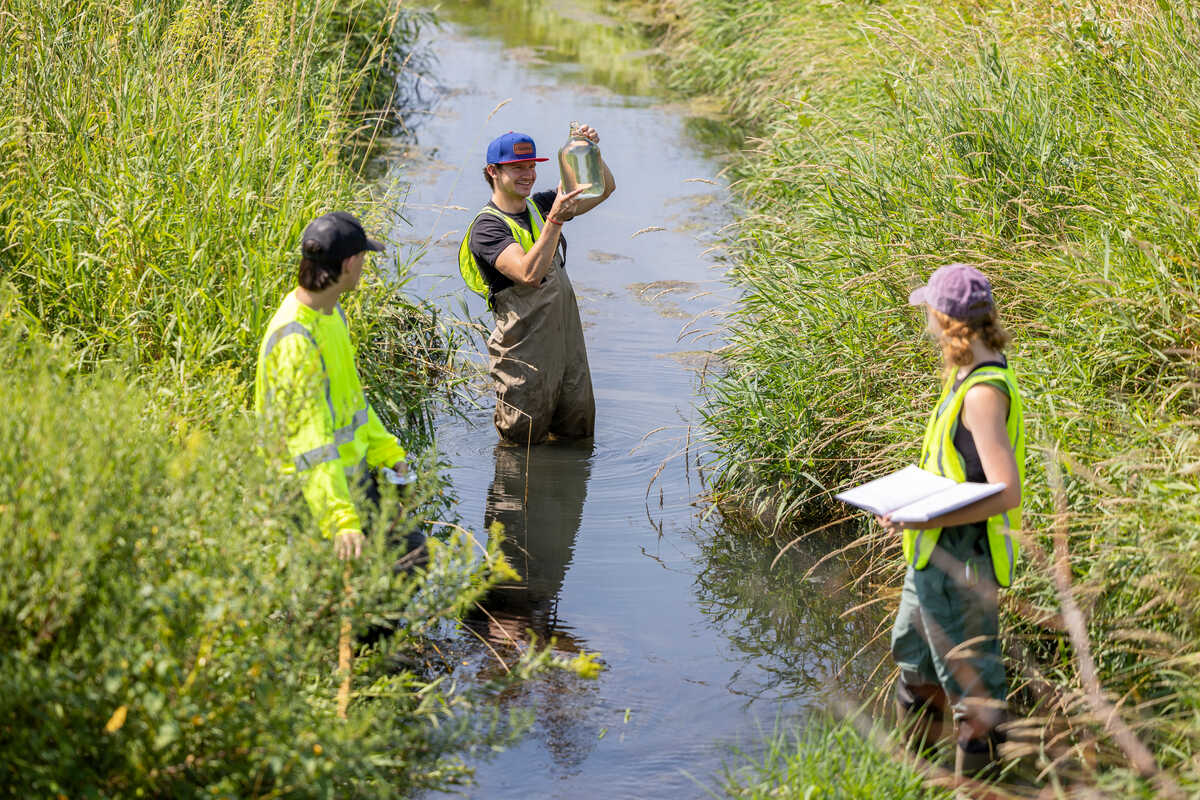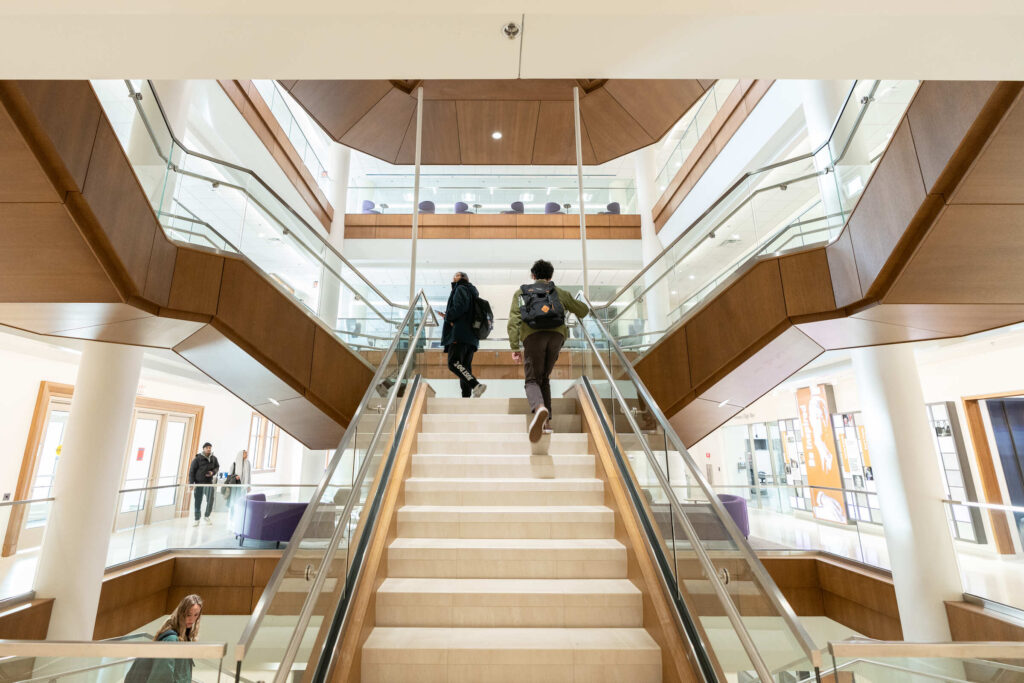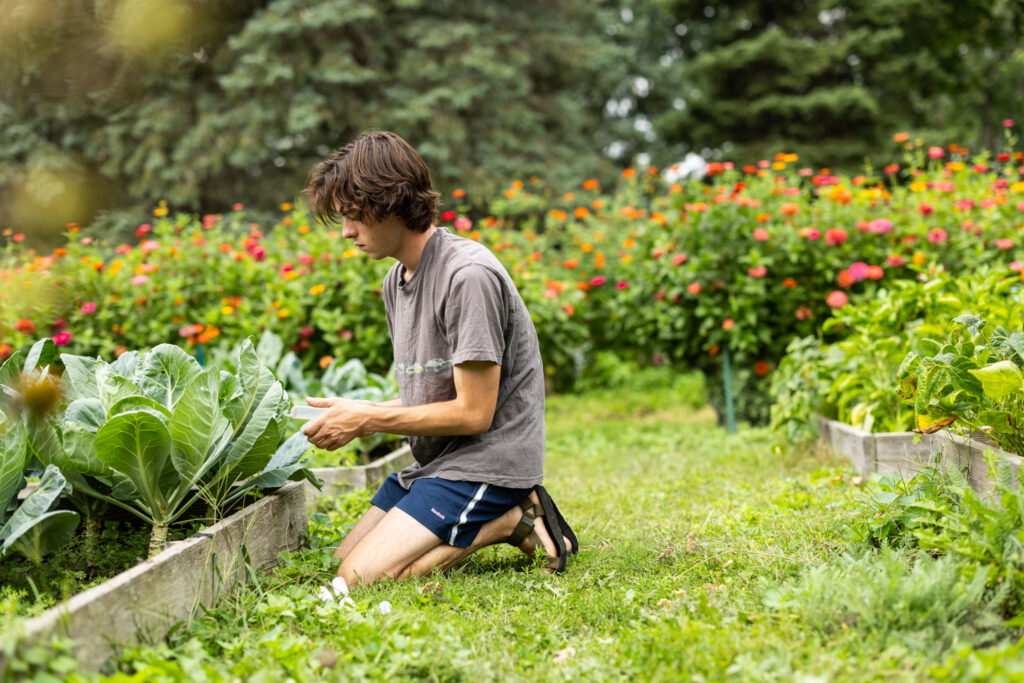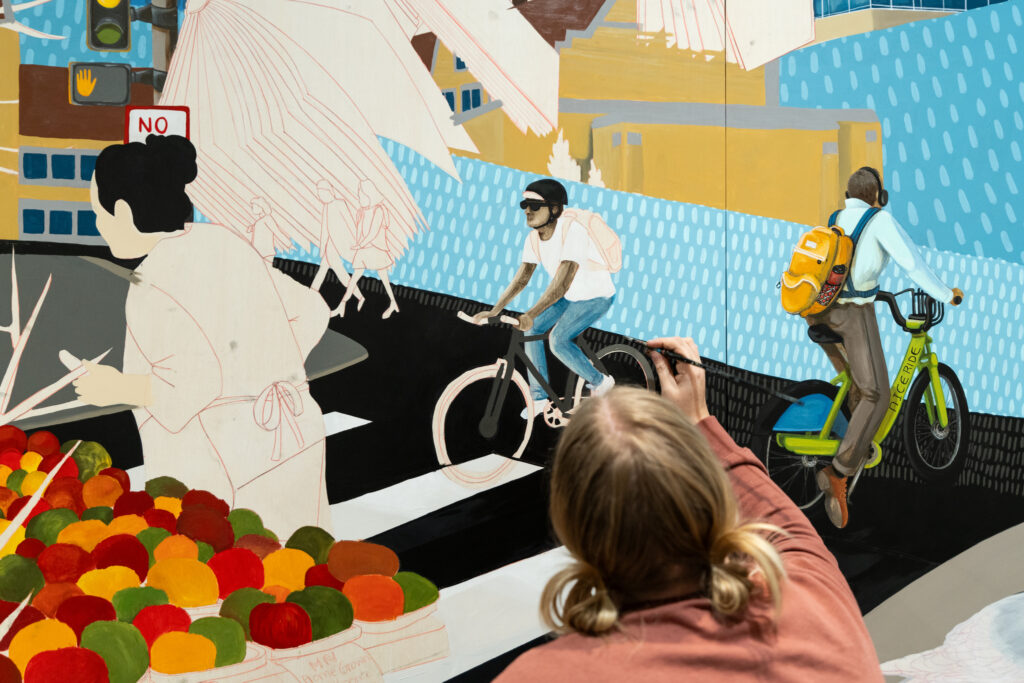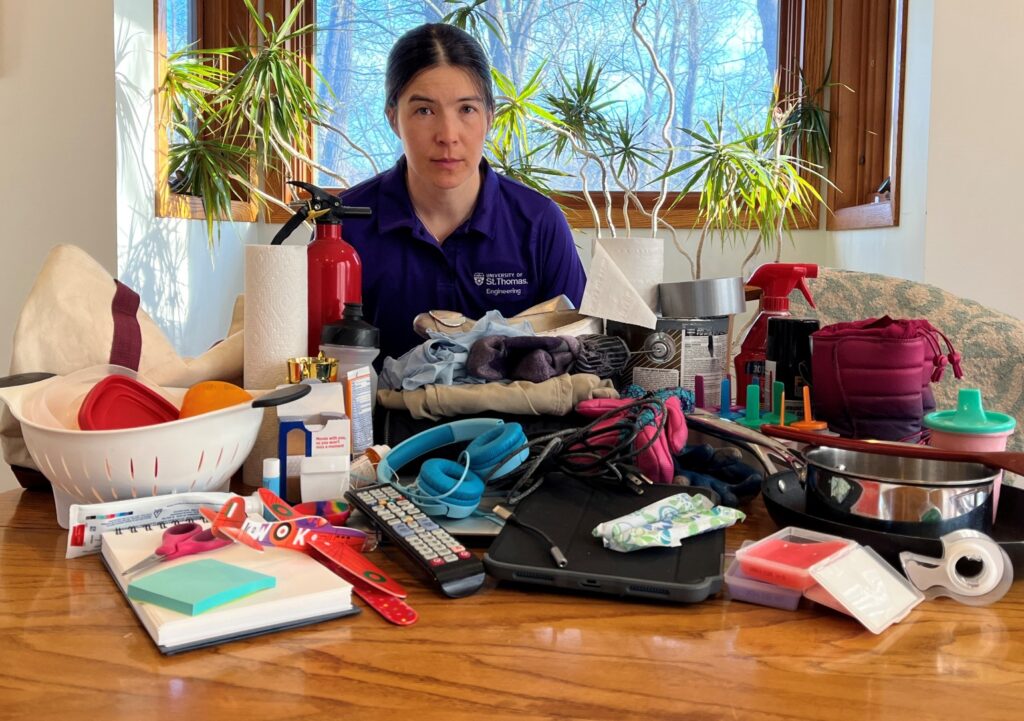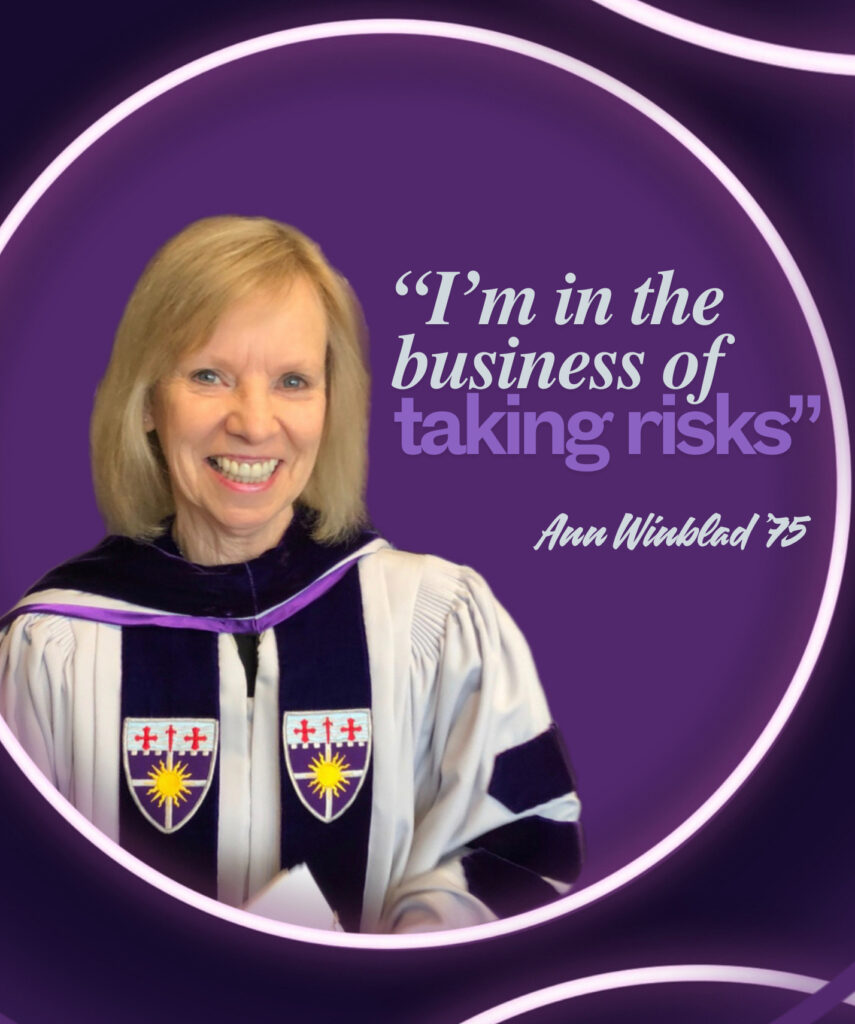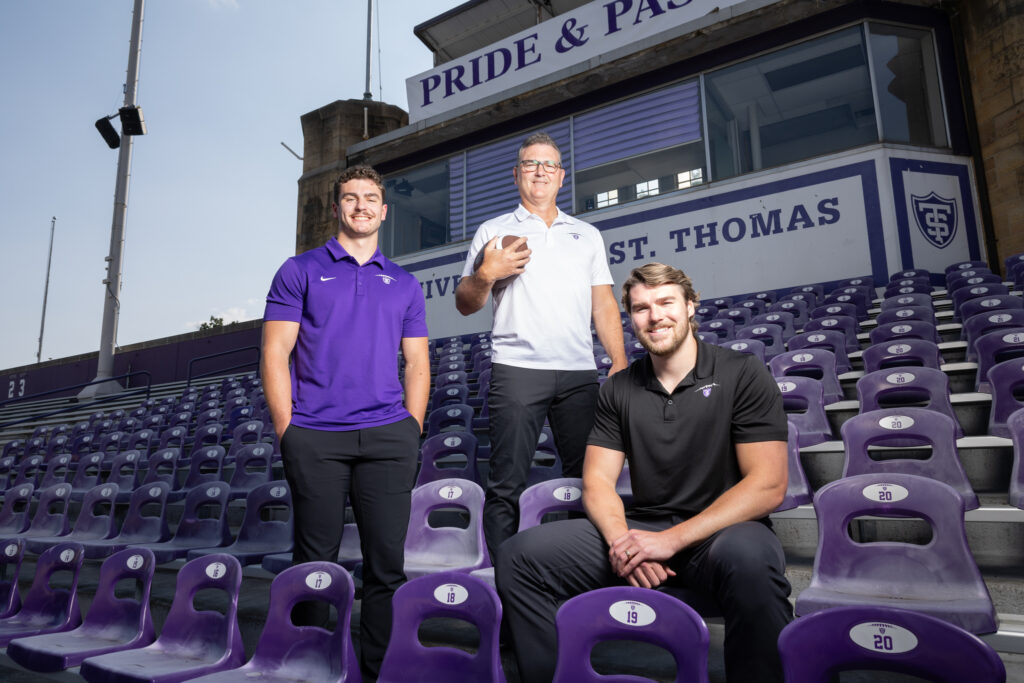Face it. People can be wasteful in ways that can have a global impact. Issues like pollution, deforestation and climate change challenge the future of this Earth that billions call home. Yet, grounded in faith and moral obligation instilled by a University of St. Thomas education, some Tommie entrepreneurs strive to reverse or slow that damage.
Take for example, Georges Macheta ’25, an innovative junior at the University of St. Thomas in Minnesota. Using the garage of his college roommate Gabriel as a learning lab, they teamed up to brainstorm a more sustainable supply chain to keep batteries out of landfills and rivers.
In the U.S., there are more than 2,000 lithium-ion batteries per person. They are in your laptop, your mobile phone, your electric toothbrush and even your wireless earbuds. Unfortunately, 95% of lithium-ion batteries end up being improperly discarded, often landing in landfills, causing harmful compounds to seep into the environment.
This didn’t sit right with Macheta, a double major in entrepreneurship and computer science. He, and his now former roommate, started the business Converteca to challenge sustainability issues within the tech industry. Their meticulous five-step recycling process involves deconstructing the battery, draining residual energy using diffusion tanks, and separating it into metals and black mass before chemical processing.
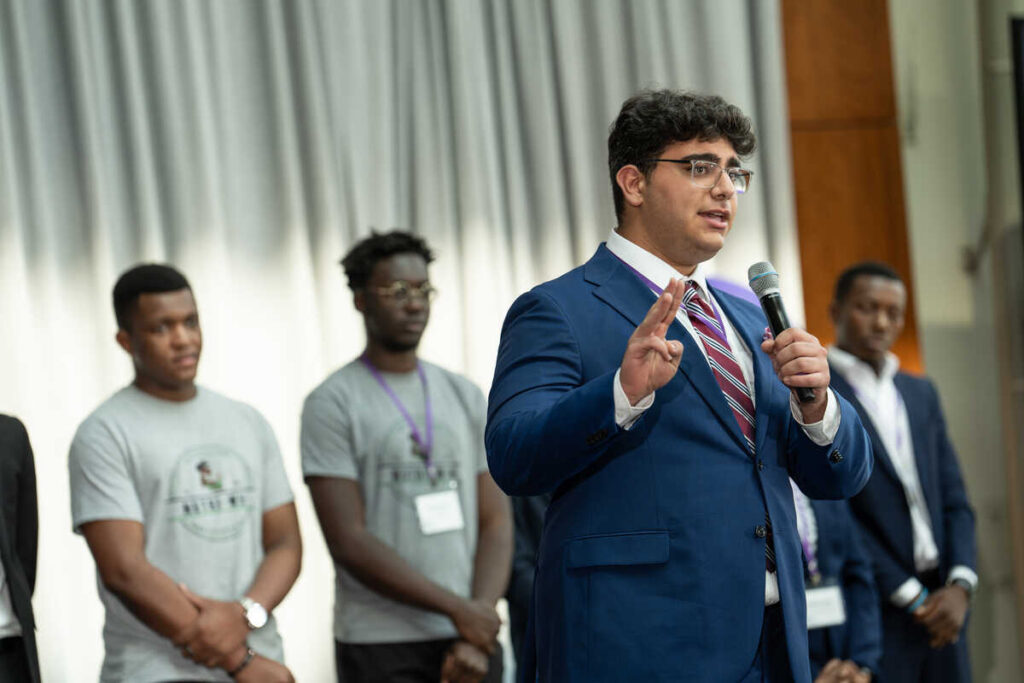
Macheta credits the Schulze School of Entrepreneurship at the Opus College of Business with expanding his understanding of social entrepreneurship.
“I’ve learned so much about how entrepreneurship can be used to help others and create a positive impact,” he said.
Sustainability is a fundamental part of the University of St. Thomas’ mission.
“We are called to be stewards of creation and to take intentional actions to care for our common home,” President Rob Vischer said about St. Thomas’ commitment to sustainable practice. “Every member of the St. Thomas community has an important role to play in reaching our sustainability goals, and as an educational institution we have a unique responsibility to lead in the present and equip students with tools and inspiration to create a better future.”
St. Thomas is recognized for exactly that.

St. Thomas is ranked 42nd among American green colleges by the Princeton Review, highlighting a true commitment to create equitable solutions for the future. By weaving sustainability throughout the curriculum, students are educated to be morally responsible leaders.
These students continue to illustrate deep commitment to creating that change after they graduate.
Will Pittner ’22 majored in entrepreneurship as a Schulze Scholar before founding his nonprofit Food To People. His company collaborates with institutions producing large quantities of food, with St. Thomas Dining Services as one of its primary collection sites.
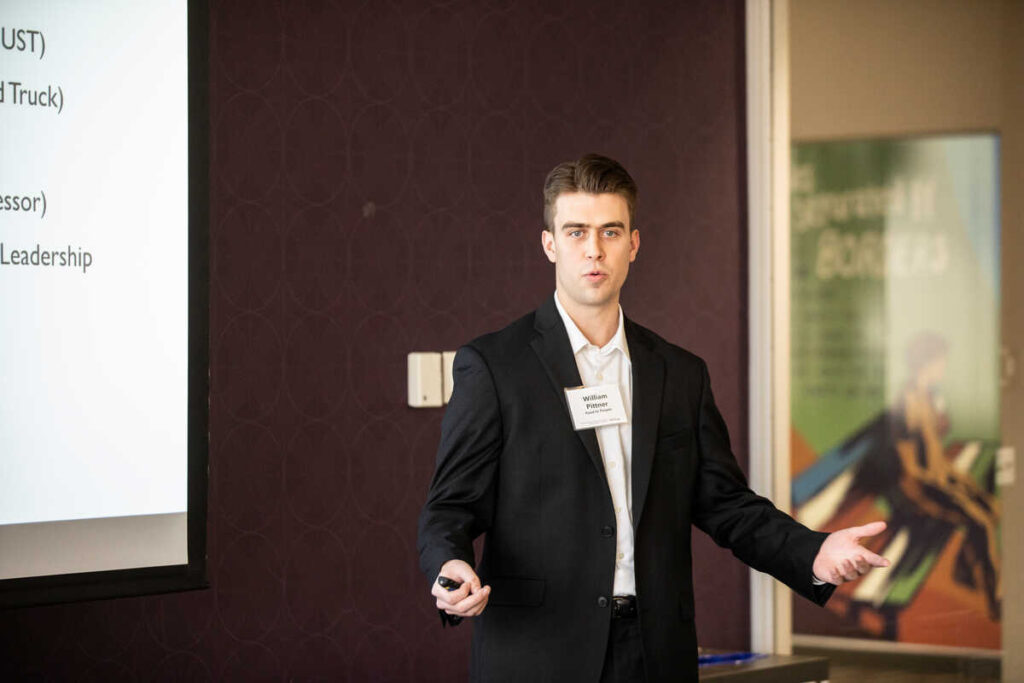
Food to People’s food recovery process involves freezing fully prepared meals to safely preserve unused food. Pittner manages the logistics of transporting these protein-rich meals to various locations, including homeless shelters and churches in the Twin Cities.
“Many people don’t even realize that at least a third of all food intended for human consumption just goes to waste,” Pittner said. “I have had great influences in my life such as Paul Hietpas (St. Thomas facilities supervisor and adviser to the sustainability club), who opened my eyes to the necessity of sustainability.”
Pittner added that “St. Thomas laid the foundation for innovation by allowing one to seek truth, acknowledge beauty, and the work for good, enabling progress with direction.”
It was a class by Opus College Associate Professor Alec Johnson that inspired Pittner and friends to join the Fowler business competition in an attempt to build a business that solves a problem they saw in everyday life.
“Many people don’t even realize that at least a third of all food intended for human consumption just goes to waste,” Pittner said. “It was breaking my heart watching bucket after bucket get put on a truck knowing that if we developed a system to maintain this food, we could bring this food to people,” Pittner detailed.
Pittner is one of numerous Tommiepreneurs who received funding from the Schulze Innovation Fund to create businesses with a social purpose. The fund, which supports entrepreneurial St. Thomas students and alumni, has invested over $1 million into Tommie alumni businesses, providing early-stage capital, mentoring, and connections.
Double majoring in entrepreneurship and finance, Schulze Scholar John Costello ’25 created West Metro Solutions, a successful furniture company to combat waste in the industry.
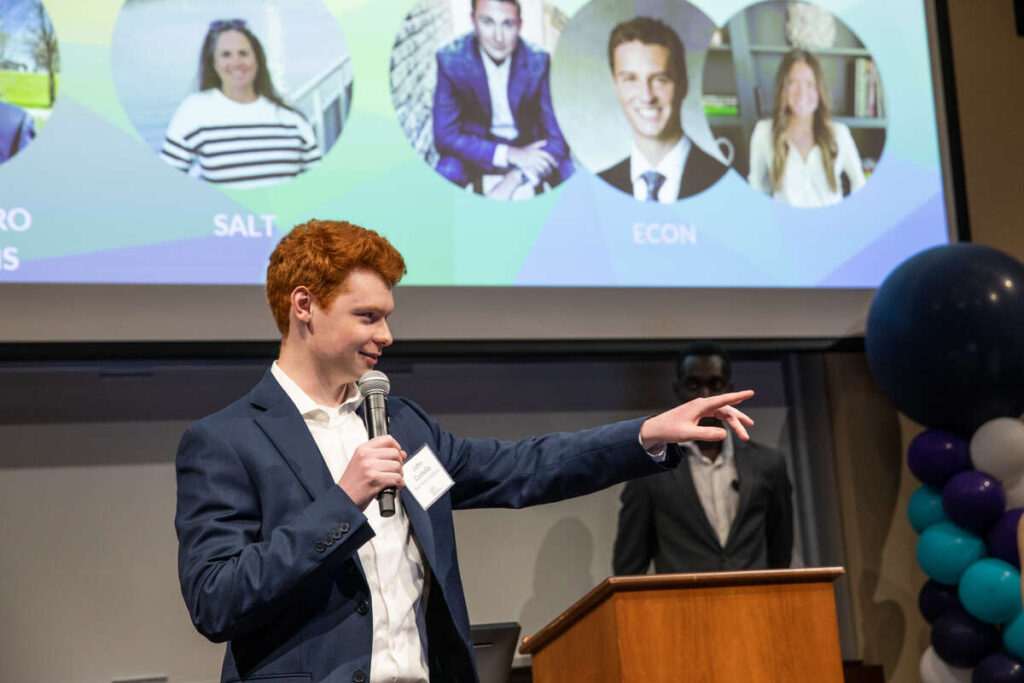
“17 billion pounds of office furniture is discarded every year in the U.S., and 80% of that is thrown away,” Costello said during an interview with FOX 9’s Bisi Onile-Ere.
“We’re taking the old fabric off and we’re putting new fabric on, so it looks like a brand-new cube at a quarter of the price,” Costello said.
The one-man operation he launched three years ago has prospered. “We’ve done over a million dollars in sales now,” Costello said. “That’s $1 million made from potential trash. Furniture that would grow our landfills and pollute our communities, now strengthens them.”
As if reducing waste is not enough, the process also creates affordable solutions for small businesses.
“We need to reframe our thoughts about sustainability. For most people I know, sustainability is seen as a charitable thing. It’s not convenient. We do it because it is good. I want to reframe this and make sustainability the most effective way to do business,“ he added.
Costello’s sustainable efforts also offer a better financial option for businesses. When he repurposes old furniture, he can offer quality products 75% cheaper than new furniture. The company saves on landfill fees, production costs and labor. By repurposing old furniture, he creates both a sustainable and a financially better option.
“Think of how much progress we could make if sustainable business practices were more economical than traditional ones. Generosity alone will never get us where we need to be. We need a paradigm shift in business,” he said.
Costello serves as an example of exactly that shift, as he credits his success to the University of St. Thomas and the Opus College in helping him develop his business further.
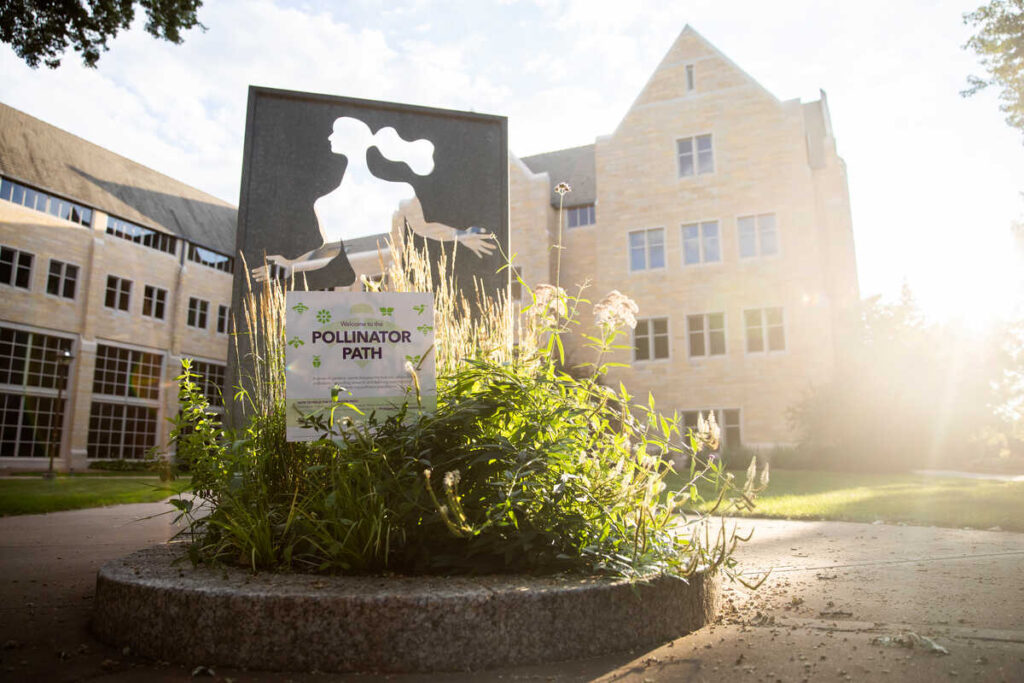
“At St. Thomas, we seek to foster interconnected human and environmental well-being in the present and for future generations, integrating ecological, social, and economic dimensions of sustainability with multiple pathways for engagement,” said Dr. Maria Dahmus, director of the Office of Sustainability Initiatives and Sustainable Communities Partnership.
Universitywide programs and initiatives that Dahmus’ department oversees showcase St. Thomas’ successful efforts to engage students in real-world, experiential learning and creative problem-solving. Students are involved in a Mississippi River cleanup effort, sharing stories of the river through art, and more. All in all, since its 2016 founding, the Sustainable Communities Partnership has resulted in over 150 projects in courses across 27 disciplines with more than 2,000 students.
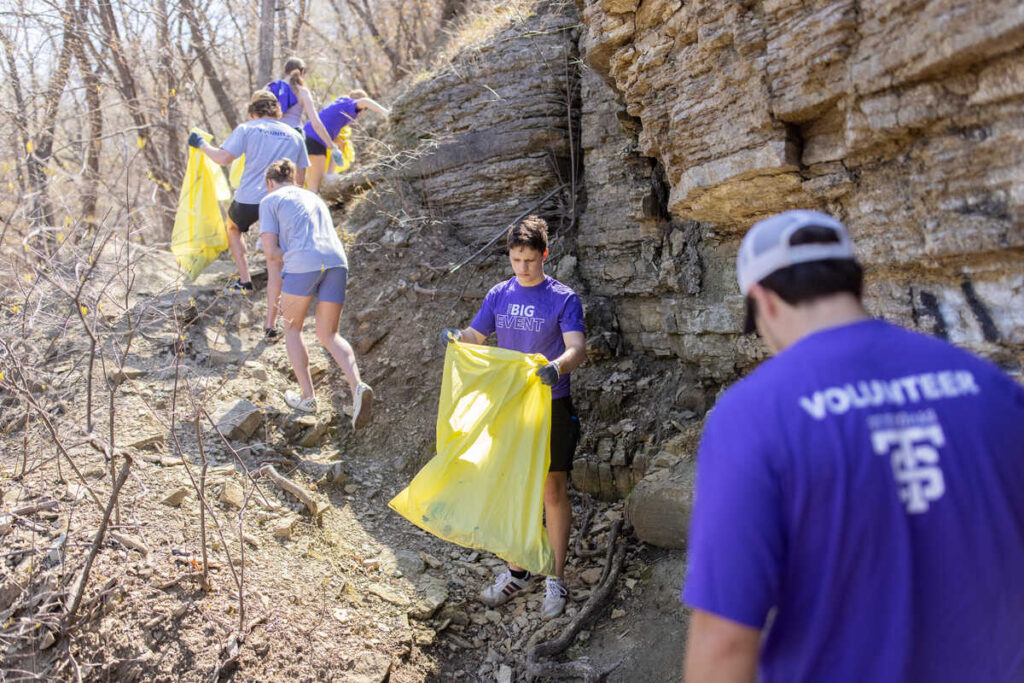
The University of St. Thomas aims to continue educating future leaders with a moral dedication to sustainability, instilling in students a responsibility to protect Earth, our common home.
